Please use this space to pose questions, topics, or passages for discussion related to today’s readings.
Uncategorized
Week 13 Day 2 Question 4
Read the attached article. It’s about the case of Bei Bei Shuai, which Goodwin discusses in her chapter, “Creeping Criminalization of Pregnancy in the United States” (see pp. 23-25 in the Goodwin excerpt). What do you think of the State of Indiana’s prosecution of Being Bei Shuai for her attempted suicide during pregnancy? How is Shuai’s status as a poor and vulnerable Chinese immigrant relevant to the case?
Week 13 Day 2 Question 3
In the Preface to Policing the Womb, Michele Goodwin writes:

Why does Goodwin find such laws problematic? What do you think of such laws? For example, should otherwise legal conduct such as smoking, drinking, and refusing bed rest be criminalized?
Week 13 Day 2 Question 2
Michele Goodwin’s work, Policing the Womb, is subtitled “Invisible Women and the Criminalization of Motherhood.” Who are the “invisible women” to whom she refers? How is their experience of pregnancy and mothering different from that of relatively privileged white women?
Week 13 Day 2 Question 1
In Policing the Womb, Michele Goodwin discusses the criminalization of pregnancy, abortion, and motherhood. In doing so, how does she challenge us to broaden the ways we think about reproductive rights in the United States?
Oops! sorry for delay!
Here is the link to my project as it stands
https://storymaps.arcgis.com/stories/069e47d8cf6340309b9feb38776c7a43/edit
Week 12 Day 1 Question 6
In “Digital Feminist Activism,” Kaitlynn Mendes and Jessica Ringrose dispute the generalization that “engaging in digital activism is easy and banal, or a form of ‘low-intensity’ activism” — at least in the case of #MeToo (38). They argue instead that participation in #MeToo is “affectively charged” and “often traumatic” for the individuals who identify with the hashtag and share their stories of sexual assault online. What do you think? Is participation in #MeToo a form of ‘low-intensity’ activism? Or is it something more substantive and transformative?
Week 10 Day 2 Discussion Question 4
Paul Elam, founder of “A Voice for Men,” characterizes feminism not as a movement for women’s rights, but as a war on men. He writes:
In the men’s rights community… we have long lamented the cruel and destructive war that has been waged against men and boys for the past half century. We’ve shouted endlessly at a deaf world that we were on the path to destruction, and we have watched our predictions of men being reduced to indentured servants to a malicious matriarchy come true, even as society continues to dismiss and humiliate us for speaking. (Elam, quoted in Kimmel, 116-117)
In this statement (and in countless others), Elam emphasizes the persecution of men in an increasingly “gynocentric” — and “misandrist” — world. Regarding this persecution narrative, Alice E. Marwick and Robyn Caplan write:
By saying “You’re not the victim, I’m the victim!” the MRA [men’s rights activist] . . . is able to adopt a defensible position as the suffering victim, turning feminist (or queer, or anti-racist) activism on its head and re-framing it as oppressive. This then justifies harassment as a defense mechanism to protect men against loathsome feminists out to oppress them. It is unsurprising that the MRM pioneered and engages in weaponized harassment, given the centrality of the victim narrative to their ideology. (Marwick and Caplan, 554)
Do you agree that the virulence of men’s rights activists’ attacks on feminists (and queer and anti-racist activists) can be explained by their feelings of victimhood or persecution? Why or why not?
Week 10 Day 2 Question 3
Jillian Horowitz, author of Collecting Male Tears: Misandry and Weaponized Femininity on the Internet, says that ironic misandry turns things that represent overt and stereotypical femininity into symbols of feminist anger.
She points out that misandry jokes don’t cater to men; instead, they appeal to members of the same in-group (feminist women). Being in on the joke can help foster a connection and a sense of solidarity between women with common feminist goals, and for those who need it, it can serve as a coping mechanism for living in a world that wasn’t build for you.
Horowitz acknowledges the criticism that “misandry rhetoric often elides the intersections of race, class, gender, and sexuality in ways that are not always productive.”
How do you feel about ironic misandry, as illustrated in the examples below?

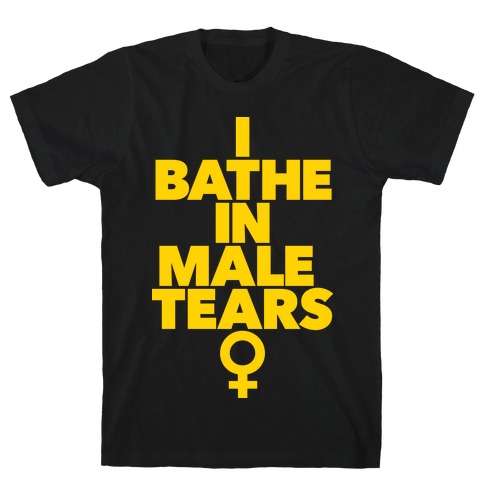
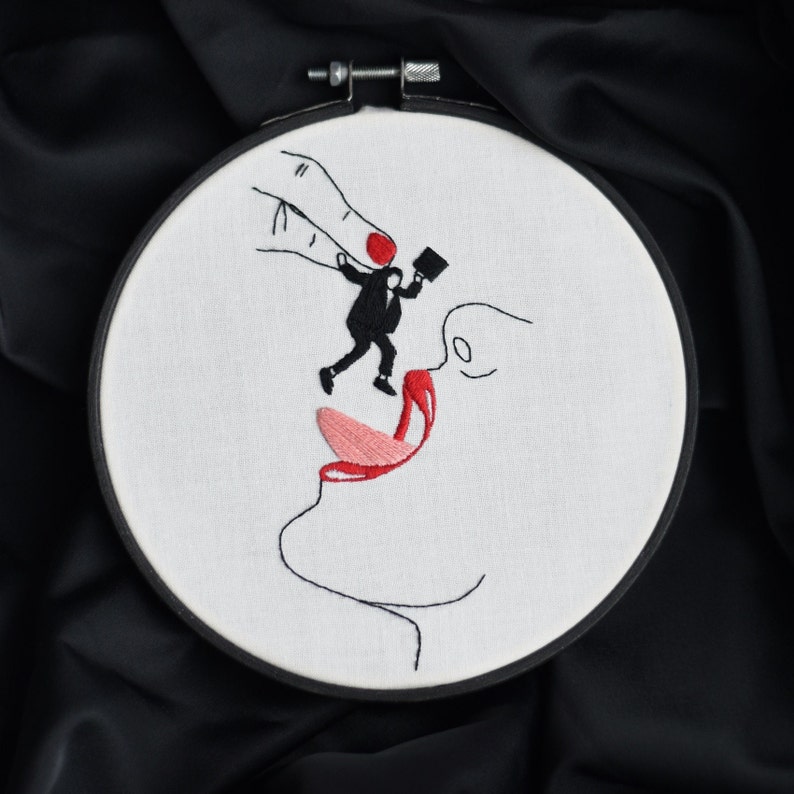
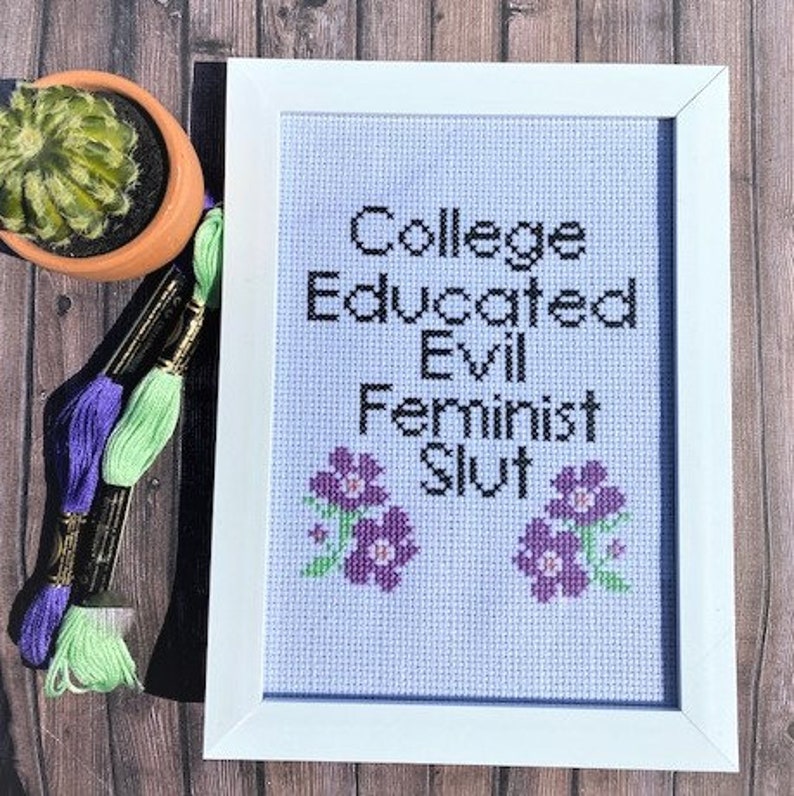
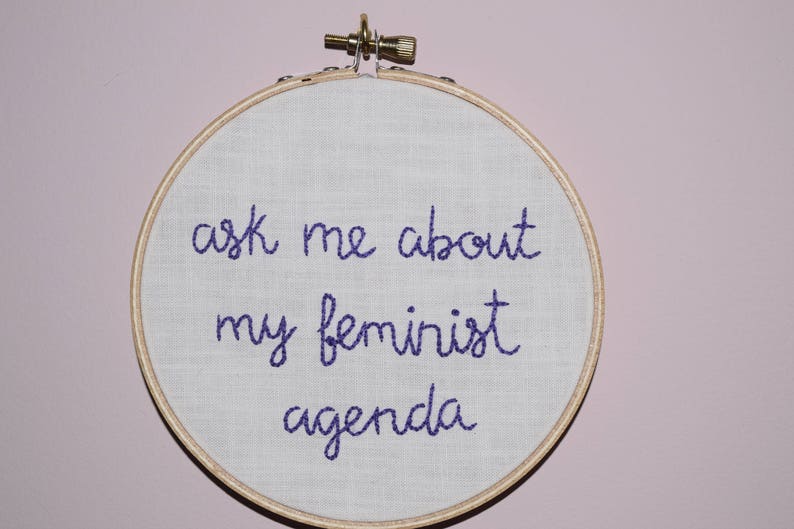
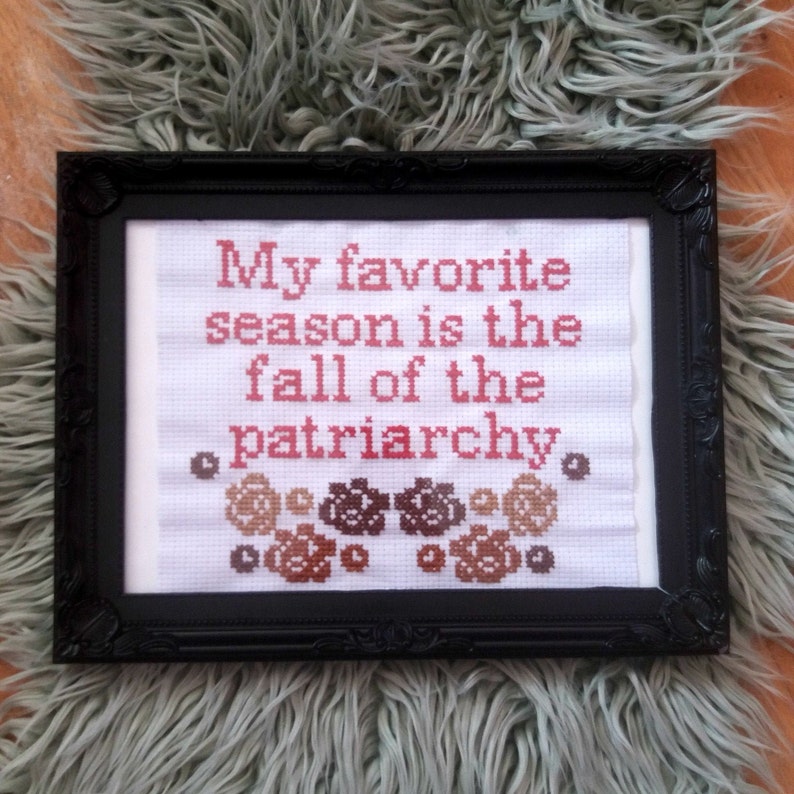
Week 10 Day 2 – Pick a Passage or Pose a Question
Is there a particular passage from today’s readings that captivated you? Do the readings raise a question for you that you would like to pose to the class? Please post it here, along with your commentary about it.
